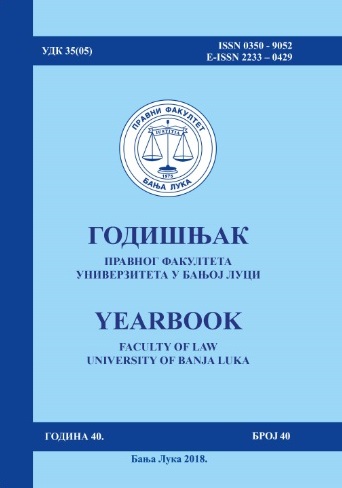DONATION IN PROSPECT OF DEATH (DONATIO MORTIS CAUSA)
DOI:
https://doi.org/10.7251/GOD1840115RAbstract
Donation in prospect of death represents a legal transaction with
a long legal tradition. This institute shares common Roman legal roots with a
testament and legacy. In different time periods of the development of Roman law,
donatio mortis causa had variable legal nature, with the dominance of the one
created in the time of Justinian’s law wherein donatio mortis causa represented
a legacy. It was an unencumbered desposal of a donor for the benefit of a donee
with effect after the death of the donor, under the condition the donee outlived
the donor. As such, donatio mortis causa could be revoked.
The disputable legal nature had marked further development of a donation in
prospect of death.Hence, ACC accepted double nature of a donation in prospect
of death, as a legacy and as a donation contract, while SCC accepted Roman
conception. Such divergent interpretation has remained to date, since donatio
mortis causa has not been regulated neither by current contract nor inheritance
law. It is, generally, believed that donatio mortis causa represents a type of
donation contract inter vivos, wherein the handing over of the object of donation
has been postponed until the death of the donor. It is a donation contract entered
into under suspensive condition that occurs at the moment of death of the donor,
and the condition is for the donee to ourlive the donor. If the donee happens to
die before the donor, his heirs have a right to request handing over of the object
of donation.Donatio mortis causa contract, as a rule, is irrevokable.
